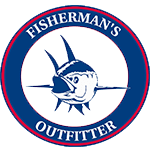Swordfish Fishing Things to Keep in Mind
April 1, 2013Find Your Fish! A Guide to the Types of Fish Found in Massachusetts During Fishing Season
May 7, 2013The spring season brings the height of fishing in New England, but this year things may be a little different for commercial fishing. New legislation greatly reduces the amount of fish legally allowed to be taken from the waters of Massachusetts and the surrounding areas for the purpose of re-generation and growth of fish stocks. Although the percentage varies depending on type of fish, ranging from 10% to 71%, the hardest-hitting percentage decrease is for cod found in Georges Bank, arguably Massachusetts’ most lucrative pull, calling for a 61% reduction. While shoppers will still be able to find the same fresh seafood that New England is known for, they may notice a change in price, as well as a drastic decrease in the amount of fishing vessels spotted in the Atlantic’s waters.
There are two main sides to this argument. On one side is the fishing industry — the fishermen, company owners, wholesalers, and their families — those who depend on fishing for their livelihood. On the other side are environmental conservationists and federal agencies like The National Oceanic and Atmospheric Administration, or NOAA, and The New England Fishery Management Council. Fundamentally, both sides have the same concern: the sustainability of the New England fishing community. It is true that commercial fishing has always been a tough industry full of ups and downs, but in recent years, with so many boats out there looking for a big haul, the numbers of fish available to the fishermen are rapidly depleting. For those who need the fish to generate profit, this creates a vicious cycle where, as the number of fish available depletes, the need to find them grows more desperate. So what’s to be done? This is where NOAA steps in, concerned over a diminishing ecosystem that so many Americans depend on. How does one fix a troubled industry that affects both people and the environment? What kind of sacrifices must be made?
NOAA believes the best course of action is to regulate the amount of seafood commercial fishing vessels can pull from the water, and in doing so, give the stock time to replenish and thrive again, ultimately giving the industry a much-needed boost. This vote was passed by The New England Fishery Management Council only recently, and will be put in place by May 1. However, for the fishermen, time is the enemy. There was concern over the ability to catch enough fish even before the regulations, but now many are concerned that, by the time the stock is replenished, their businesses will be run aground. The fishermen also feel that the numbers pulled by these organizations are inaccurate and in need a closer look. For most commercial fishermen, this is the biggest in a series of hard years, and although some feel it may makes sense long term to allow the fish to regenerate their quantities, the livelihood of everyday fishermen is now threatened to the point of extinction.
The repercussions of this new legislation will not be immediately realized. Only time will tell what lasting effect it will have — not only the amount of fish in the ocean, but on the amount of professional fishermen found in Massachusetts.
